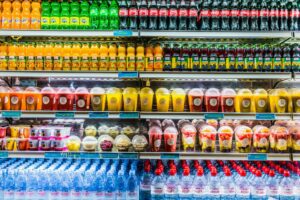The #ThinkBioplastic platform has launched a second series of videos explaining how bioplastics can play a role in solving our plastic predicament.
The #ThinkBioplastic platform aims to help government, media and the public better understand the complexities of plastics and plastic pollution and learn more about available alternatives.
Through the platform they share content about the whole plastic life cycle (production, use and disposal) and investigate the science behind recent plastics headlines. #ThinkBioplastic aims to highlight the role of bioplastic in reducing the negative impact of polymer manufacture and disposal.
They have recently launched series 2 of their easily digestible videos, which dig deeper into the science behind bioplastics.
Here’s what the different episodes in series 2 cover:
Episode 5: To Bio or Not To Bio
All the questions the #ThinkBioplastics team have received about bioplastics, answered in less than 10 minutes.
Episode 6: ScienceTime – The Game Show
In this episode they cover plenty of practical questions that individuals can encounter on a daily basis, such as: what’s the difference between compostable and biodegradable? What bin do I throw my bioplastic cup into? How can I tell when a plastic is bio-based or not?
Episode 7: But I recycle!
Recycling, the silver bullet to plastic pollution?
Episode 8: Can Bioplastics ever compete?
Apart from being more sustainable, can bioplastics truly match their oil-based counterparts?
In case you missed it, the videos in series 1 covered:
Episode 1: What’s wrong with plastic?
We’ve all heard the news, we have a plastic problem. Ocean plastic, microplastic, plastic pollution, plastic waste… We’re finally waking up to the impacts of our addiction to single-use plastic. But what exactly is wrong with plastic?
Episode 2: Unsavoury beginnings
Taking a close look at plastics. How close? Molecular.
Episode 3: Why won’t you die?
The reason that we’re drowning in plastic is simple – plastic doesn’t breakdown.
Episode 4: Plastic from plants
Plastic…from plants? Could this be the solution to our plastic problem? It’s time to talk about bioplastics.
You can find out more about think #ThinkBioplastics on their website here.




